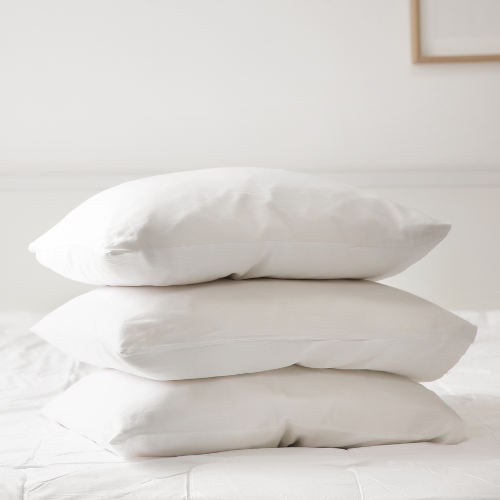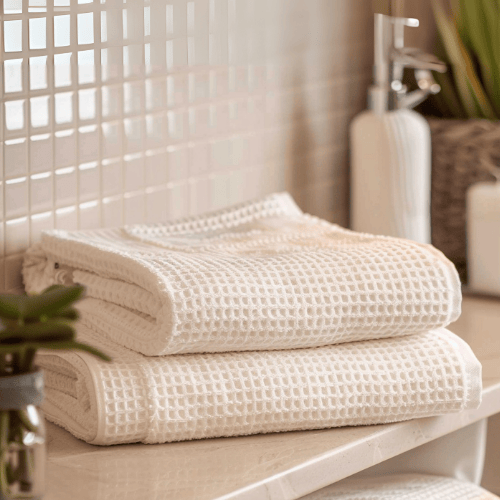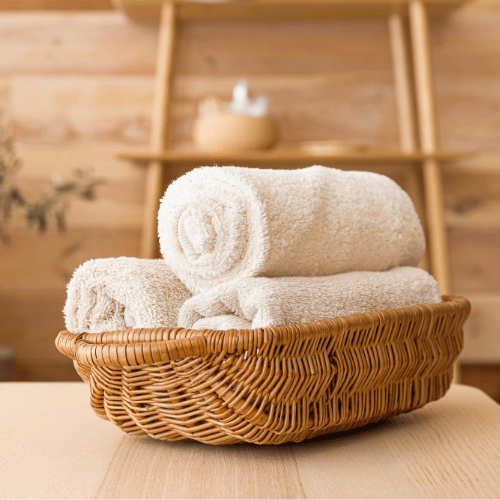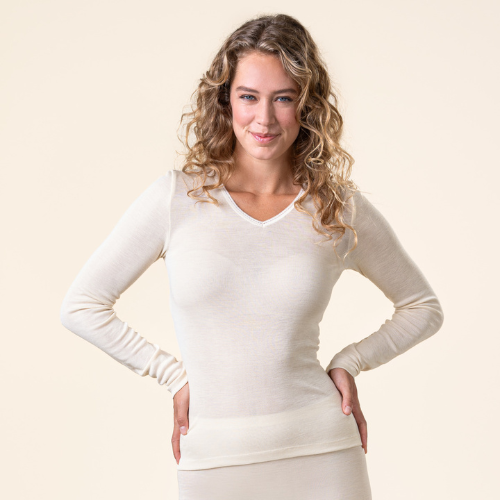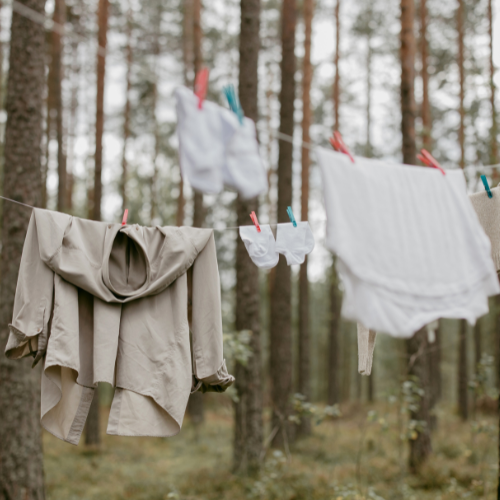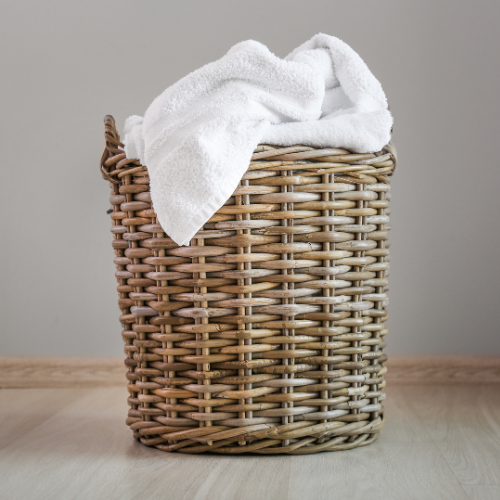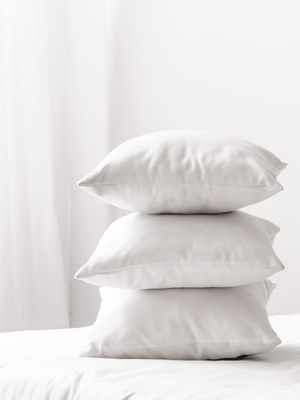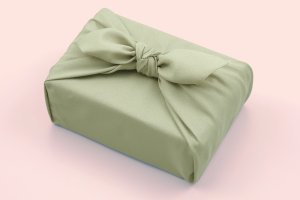How often you should wash your sheets
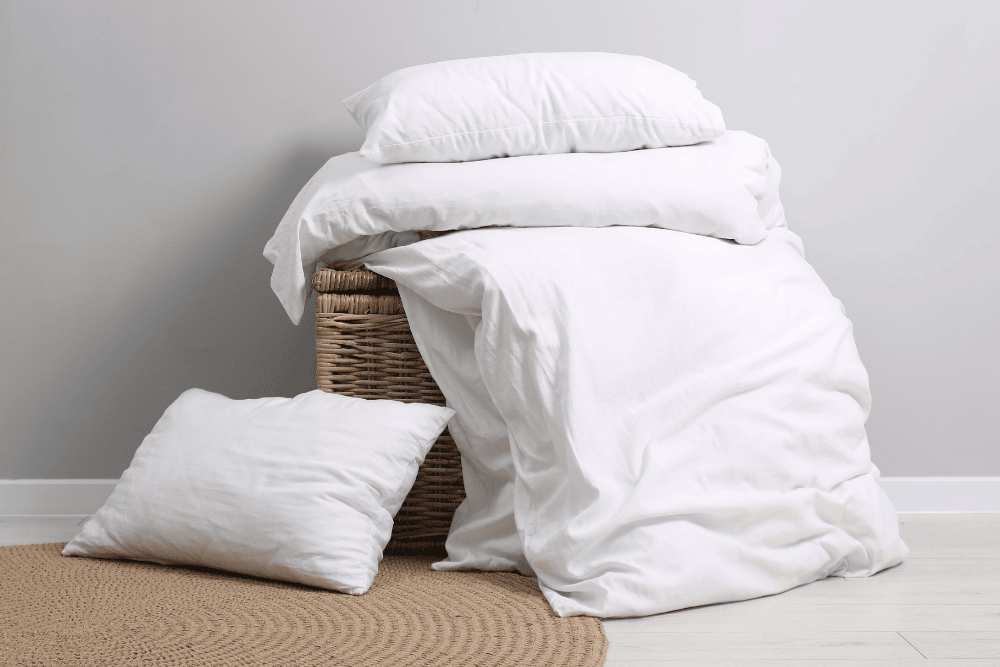
How often should I wash my sheets?
Every night as we sleep, we release moisture through sweat and oils from our skin and drop dead skin cells into our beds. Sharing our bed with our partner, pets or children adds to this, and if we’re breakfasting or enjoying a morning cuppa in bed, then accidental spills can easily happen. But how often should we wash our bedding to keep our sleep space hygienic, whilst balancing that with the environmental impact of laundry, and the longevity of our sheets?
At Greenfibres we've been making organic bedding for over 25 years, and we recommend for most people, washing your sheets, duvet covers and pillow cases every one to two weeks is ideal. This keeps your bed linen fresh without it wearing down too quickly, and minimises energy use being kinder to the environment and your wallet.
What happens if I don’t wash sheets often enough?
If you don't wash your bed sheets regularly, you can experience skin irritation, alleriges and other health issues. This is because the build-up of dirt, sweat, dead skin cells encourages bacteria and dust mites which thrive on these particles, potentially causing skin breakouts, eczema flare-ups, and even breathing problems for those with allergies or asthma. Some bed linen like pillow cases should be washed more often, as they absorb more sweat and oils as they have direct contact with your skin.
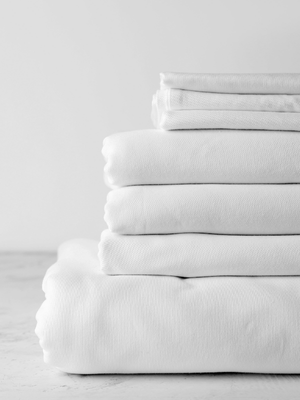
The most effective and eco friendly way to care for your bed linen
How you launder your organic sheets, duvet covers and pillow cases will affect how long they last, so it’s good to know that taking good care of your sheets is often the most eco-friendly way to take care of your bedding too. If you’ve got organic sheets, then it makes sense that you want care for them as naturally as possible too.
>> Always use natural laundry detergents like the range from Sonett. These eco-friendly laundry detergents don't contain harmful chlorine bleaches or optical brighteners that can damage cotton fibres over time, instead they use plant based detergents that are tough on dirt, grime and stains, but gentle on fabrics. Using a natural and effective laundry liquid or powder also means that you’re not washing toxic chemicals down your drains, polluting our rivers and seas.
>> Do not tumble dry your sheets - regular tumble drying wears out fabric as lot quicker than air drying, plus hanging sheets out to dry means avoiding the huge energy cost of tumble dryers. Air drying is both kinder on our environment and your wallet.
>> Washing your sheets on a cooler wash helps prevent shrinkage, and keeps your energy use and costs down. Hot water can also cause fibres to break down over repeated washing.
>> Use a gentle cycle and wash your sheets separately from other laundry to prevent damage from fastening like buttons and zips.
Five easy ways to reduce how often you wash your bed linen
If you're finding you need to wash your bedding more often than you'd like, read our simple steps to help reduce the amount of washing you need to do.
>> Air your bed every morning, by pulling back your duvet and exposing it to air and light for a few hours rather than making it straight away. It's the simplest way to keep beds fresher between washes.
>> Wearing nightwear or pyjamas acts as a buffer, protecting sheets and duvet covers from skin cells, natural oils and sweat.
>> Choose organic cotton bed linen as it’s breathable nature releases moisture keeping your bed drier and more comfortable, and avoid plastics in your bedding, like polyester in your sheets which can create a sweaty, damp environment.
>> Sleep on a natural pillow like buckwheat, silk or wool - natural fibres help to move sweat away from your skin, and then release it into the environment, reducing the moisture in your pillow.
>> If you're sleeping on a synthetic mattress, but you're not in a position to replace it with a natural one then adding a natural mattress pad made from cotton or wool, can help provide a breathable layer next to your skin, keeping the heat and moisture levels in your bed down.
>> Discover the best bed linen for keeping cool: organic cotton percale sheets are crisp and cool, thanks to the unique weave pattern that creates air pockets between the thread allowing for excellent airflow. It’s our favourite for warm summer nights!
FAQS
Should I wash my new sheets before using them?
If you’re using organic bed linen such as our Global Organic Textile Standards (GOTS) certified bedding, then there’s no need to wash them first. Usually people want to wash new sheets to remove the toxic chemicals in the finishing chemicals that are used in non organic sheets. However, toxins and chemicals that are harmful or irritating to human skin such as chlorine bleaches and optical whiteners are banned under organic standards so you can put your organic sheets from the packaging straight on to your bed.
What’s the best bed linen if I need to wash my sheets more often?
Our classic organic cotton bedding is crafted from a renforce weave and is ideal if you need to wash your sheets regularly. A renforce weave is extra strong and durable, and it becomes softer over time, feeling better wash after wash. This is the bed linen for you if you value quality and want to invest in superior bed linen that lasts. We've had customers who've had our classic range for over 10 years, and it's still going strong.
Should I wash my pillows and duvets too?
Most of our natural fibre pillow and duvets don't need washing - fibres like wool and silk will naturally rengenerate if you air them regularly, and expose them to sunlight. If you have any spillages or marks then we recommend spot cleaning with a natural stain remover. If you do want to wash your duvets and pillows, then our plant fibre duvets: organic cotton, tencel and cotton & kapok duvets are machine washable, and our tencel pillows are machine washable too.


